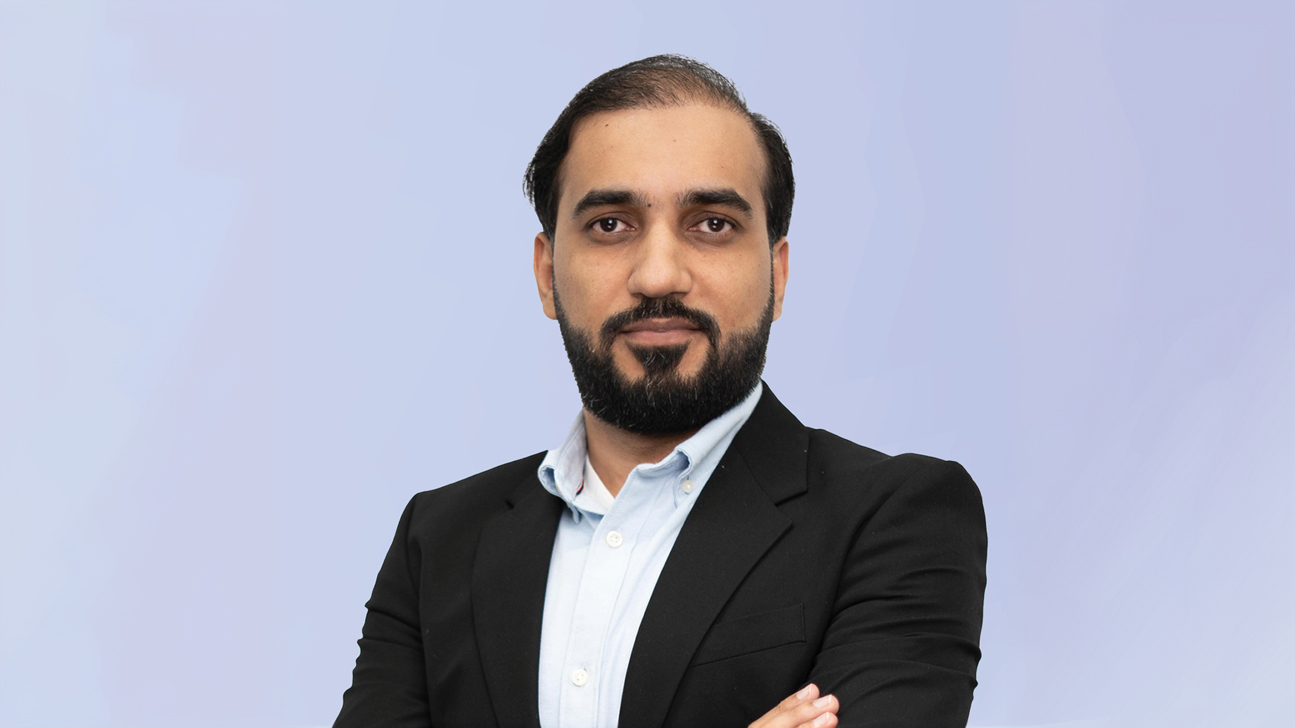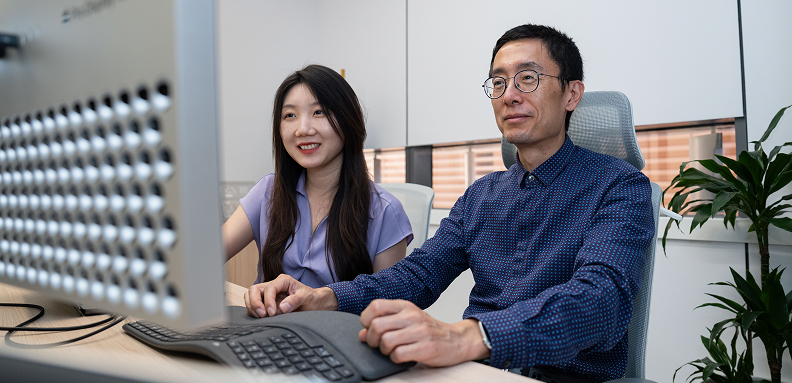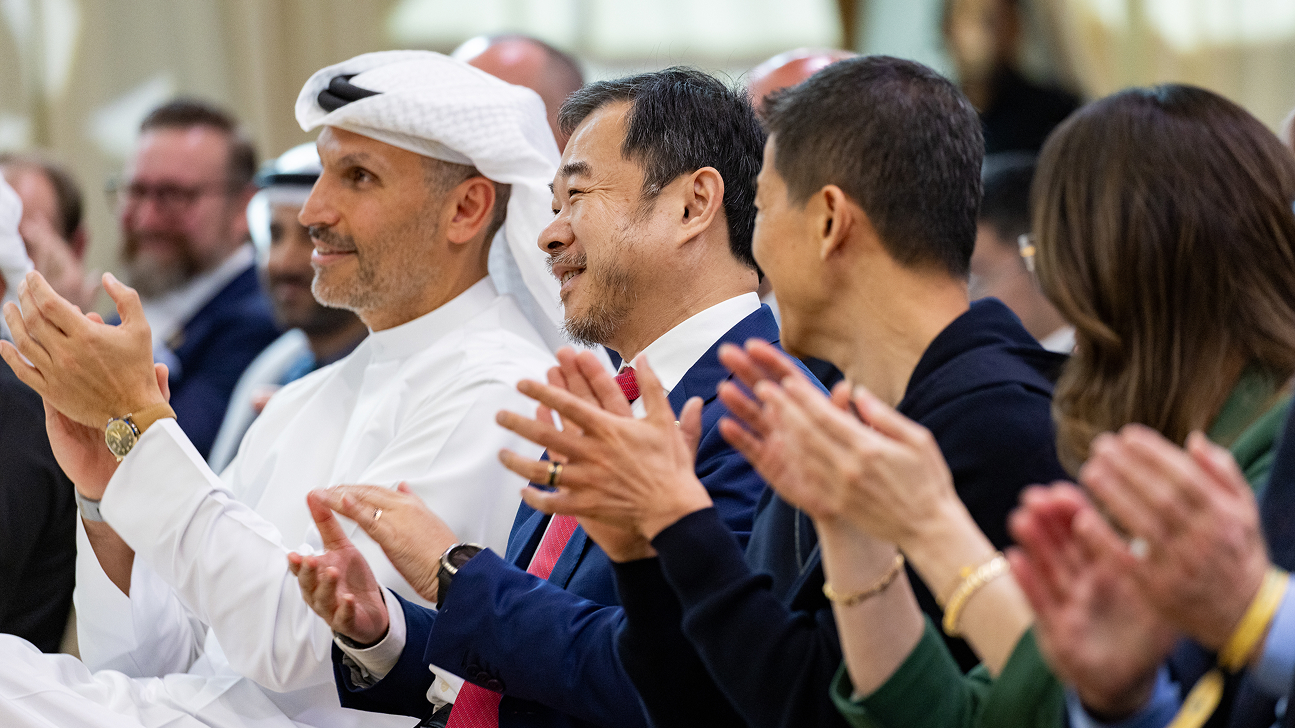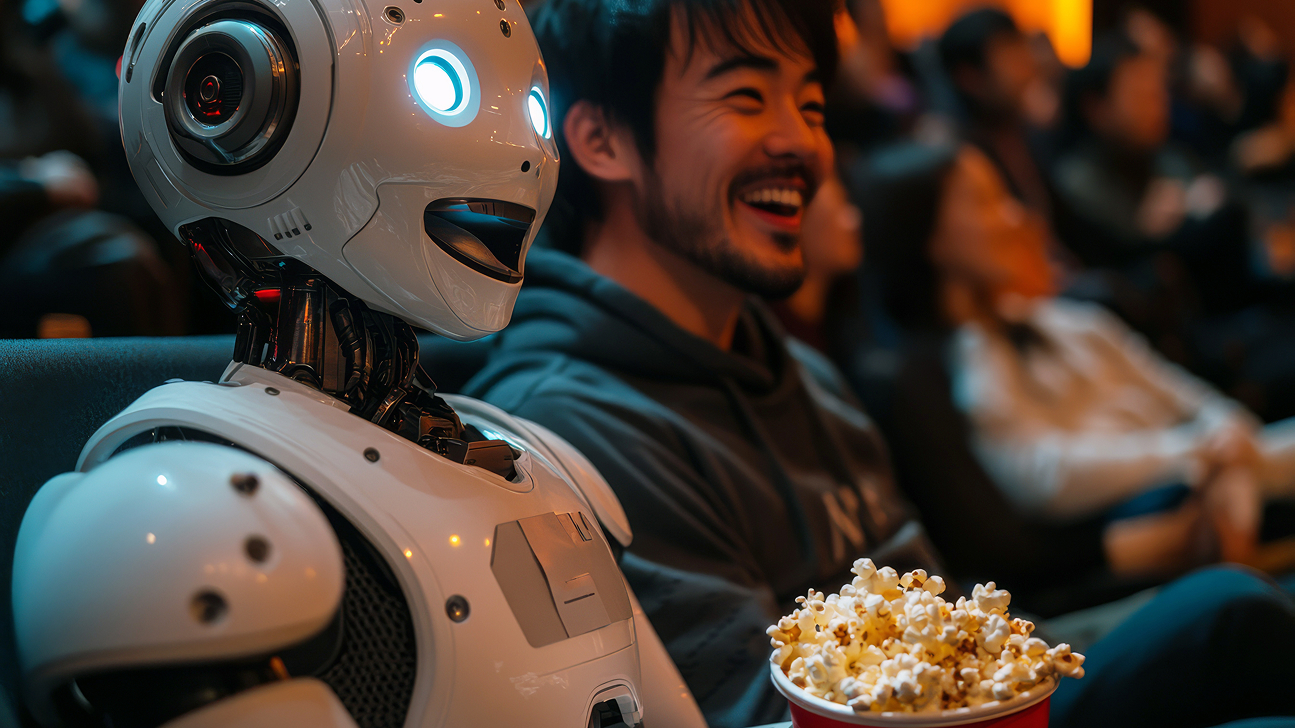Developing deep learning models to diagnose tumors
Thursday, June 06, 2024

Numan Saeed, Mohamed bin Zayed University of Artificial Intelligence’s (MBZUAI) first Ph.D. graduate and Class of 2024 valedictorian, has long been fascinated by artificial intelligence.
Having taken a course by machine learning pioneer Andrew Ng back in 2011, he gained an early insight into the potential of AI to do good.
“The application-based nature of AI, as demonstrated in projects during the course, captured my interest,” Saeed explained. ”The diverse applications of AI intrigued me and influenced my academic and professional outlook, especially when I worked in sectors such as aviation and manufacturing, applying AI models.”
It was inevitable that Saeed’s desire to make an impact with AI would lead him to do a Ph.D. With a background in electrical engineering and experience in industry, Saeed wanted to take a deep dive into machine learning, and MBZUAI was his obvious destination.
“My decision to join MBZUAI was clear because it stands as the sole institute dedicated to AI,” he said. “Despite being a new institution, it was evident that it had an experienced faculty with a strong publication record and field experience.”
Saeed started his Ph.D. course in 2021 and joined MBZUAI’s cross disciplinary Biopharma group, a dedicated AI healthcare research group that consisted of about 20 master’s students when he joined, and grew to 30 students under the guidance of Dr. Mohammad Yaqub, associate professor of computer vision at MBZUAI.
Saeed’s interest in AI healthcare led him to choose head and neck cancers, the seventh most common form of cancer globally, as his main research area. He was keen to conduct valuable research in this area due to the chronic demand for better services and solutions for people suffering from these cancers, which affected around 1.1 million people in 2021.
Early diagnosis and effective treatment can reduce mortality rates by up to 70%, which makes any process or technology that can significantly improve diagnosis and prognosis a potential lifesaver.
“My decision to research head and neck cancers stemmed from their unique challenges,” Saeed said. “These cancers can appear in various locations within the head and neck, posing difficulties in early detection due to differing symptoms. The challenges lie not only in the detection process but also in accurately pinpointing the location, which our AI models aim to address.
“Given the high treatment costs and limited resources in some countries, leveraging AI models to enhance the diagnosis and prognosis of cancer patients could significantly alleviate the burden on healthcare systems, in addition to helping the individual people being diagnosed.”
Saeed’s research investigated how deep learning models can be used to diagnose tumors and predict the survival rate of patients diagnosed with specific forms of cancer.
He developed a multi-modal AI model capable of interpreting PET and CT scan imagery – a computer vision challenge – and assessed these in combination with the correct interpretation of the associated doctor’s notes, which falls within the field of natural language processing (NLP). To arrive at a diagnosis and a prognosis, the AI model had to consider variables including the patient’s age, gender, weight, the size of the tumor, prior treatment, and whether or not they drink alcohol or smoke.
“To make this kind of diagnosis and prognosis possible, you have to make sure that it is generalizable, and to do that, you have to focus on making evaluation processes stricter and more robust during the training stages,” Saeed said.
To train the AI system to detect cancers in scans, Saeed utilized a dataset from seven centers, mainly in Europe and Canada, comprising around 700 patients.
Training challenges included difficulties in detecting metastasis, especially in later stages, as small cancerous lymph nodes away from the primary tumor sometimes went unnoticed. Additionally, the dataset’s limited size posed challenges in training the model to accurately identify specific scenarios, emphasizing the importance of data diversity and size in refining AI models.
The research was the basis of Saeed’s Ph.D. dissertation, entitled ‘Deep Learning for Cancer Diagnosis and Prognosis’.
Saeed believes the impact of the technology could be particularly profound in countries such as India where oncological services are limited and there is a shortage of specialist clinicians, especially in rural areas where more than two-thirds of the country’s 1.43 billion people live.
Having been immersed in this research for three years, Saeed is currently working as a postdoctoral graduate on ongoing aspects of the research.
“I aim to publish further before transitioning to industry,” he said. “I’m particularly interested in AI applications with real-world impacts. Abu Dhabi’s active AI scene and companies, and the university’s collaborations with entities such as Cleveland Clinic Abu Dhabi, make it an appealing place to stay and contribute to the field.”
In addition to completing his Ph.D. in just three years, Saeed also completed five papers where he was the lead researcher and contributed to five more. He also won an international competition – HEKTOR 2021 (Head and Neck Tumor segmentation and outcome prediction in PET/CT images) – which was launched at the prestigious International Conference on Medical Image Computing and Computer Assisted Intervention (MICCAI).
During his research, while looking at the challenge of accessing sufficient patient data for training without compromising privacy, Saeed became interested in an AI-based technique known as federated learning, which enables the analysis of patient data in-situ without it ever leaving a hospital. Pursuing the use of federated learning for diagnosis is the next stage of his research.
In terms of his experience at MBZUAI, Saeed said that he was impressed by the resources and faculty, the supportive environment, and the social life. “The diversity of the students was great and contributed to a well-rounded experience. In terms of facilities, the labs and registration processes are fantastic,” he said.
Saeed, who likes to spend his spare time with his wife and two-year old son, said that he also appreciates life in Abu Dhabi. “It’s a great place to live,” he said. “I love the cultural diversity, the safety and the ease of getting around.”
Related
Not just another deck: how MBZUAI’s okkslides is redefining executive communication
The MBZUAI startup is turning messy research and organizational context into decision-ready narratives with a human-in-the-loop AI.....
Read MoreMBZUAI marks five years of pioneering AI excellence with anniversary ceremony and weeklong celebrations
The celebrations were held under the theme “Pioneering Tomorrow: AI, Science and Humanity,” and featured events, lectures,.....
- students ,
- celebration ,
- five year anniversary ,
- ceremony ,
- event ,
- board of trustees ,
- campus ,
- faculty ,
AI and the silver screen: how cinema has imagined intelligent machines
Movies have given audiences countless visions of how artificial intelligence might affect our lives. Here are some.....
- cinema ,
- art ,
- fiction ,
- AI ,
- artificial intelligence ,
- science fiction ,


